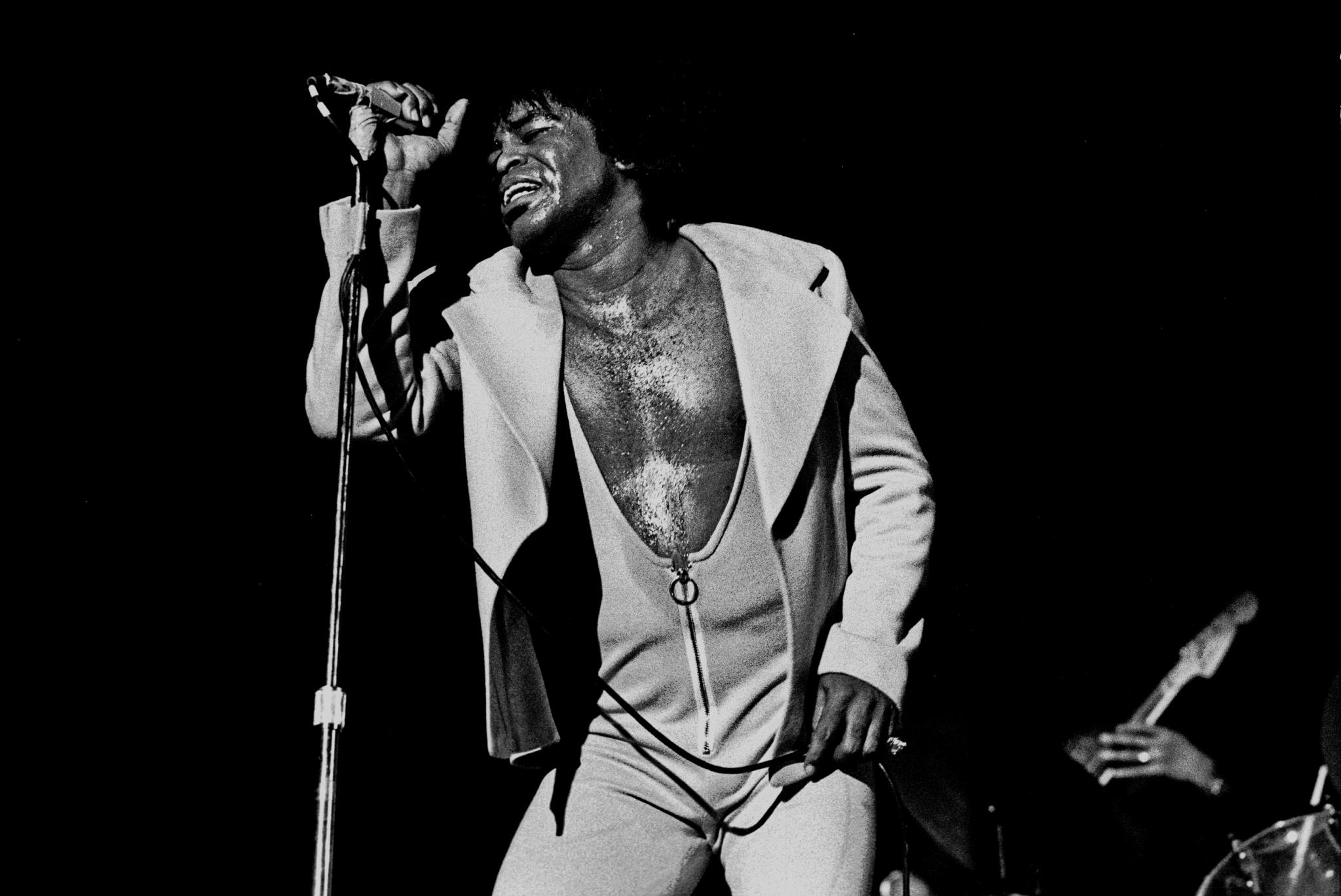|
Congo Funk!
''Congo Funk! Sound Madness from the Shores of the Mighty Congo River (Kinshasa/Brazzaville 1969–1982)'' is a compilation album of Congolese rumba, released by record label Analog Africa on 5 April 2024. Background and release In the 1940s and 1950s the influence of Cuban son music in the Republic of Congo (then a part of French Equatorial Africa) and the DRC (then the Belgian Congo) led to the development of a musical style called Congolese rumba. Thom Jurek of AllMusic writes that "the Afro-Cuban sound established new parameters for performance with reverbed guitars, distorted electric basslines, horn sections, jazz-inflected psychedelia, and funk." In the 1960s Congolese rumba grew in popularity across southern Africa. In the 1970s the music scene in the DRC (then Zaire) declined as many musicians left to escape the difficult economic situation. The presence of James Brown at the three-day music festival Zaire 74, which preceded the 1974 Rumble in the Jungle boxing match bet ... [...More Info...] [...Related Items...] OR: [Wikipedia] [Google] [Baidu] |
Congolese Rumba
Congolese rumba, also known as African rumba, is a dance music genre originating from the Republic of the Congo (formerly French Congo) and Democratic Republic of the Congo (formerly Zaire). With its rhythms, melodies, and lyrics, Congolese rumba has gained global recognition and remains an integral part of African music heritage. In December 2021, it was added to the UNESCO list of intangible cultural heritage. Emerging in the mid-20th century in the urban centers of Brazzaville and Léopoldville (now Kinshasa) during the colonial era, the genre's roots can be traced to the Bakongo partner dance music known as ''maringa'', which was traditionally practiced within the former Kingdom of Loango, encompassing regions of contemporary Republic of the Congo, southern Gabon, and Cabinda Province of Angola. The style gained prominence in the 1920s–1940s, introducing the advent of the " bar-dancing" culture in Brazzaville and Léopoldville, which incorporated distinctive elements suc ... [...More Info...] [...Related Items...] OR: [Wikipedia] [Google] [Baidu] |
Afrobeat
Afrobeat (also known as Afrofunk) is a West African music genre, fusing influences from Nigerian (such as Yoruba) and Ghanaian (such as highlife) music, with American funk, jazz, and soul influences. With a focus on chanted vocals, complex intersecting rhythms, and percussion,Grass, Randall F. "Fela AnikulaThe Art of an Afrobeat Rebel". ''The Drama Review''. MIT Press. 30: 131–148. the style was pioneered in the 1960s by Nigerian multi-instrumentalist and bandleader Fela Kuti, who popularised it both within and outside Nigeria. At the height of his popularity, he was referred to as one of Africa's most "challenging and charismatic music performers." Distinct from Afrobeat is Afrobeats, a combination of sounds originating in West Africa in the 21st century. This takes on diverse influences and is an eclectic combination of genres such as hip hop, house, jùjú, ndombolo, R&B, soca, and dancehall. The two genres, though often conflated, are not the same. History ... [...More Info...] [...Related Items...] OR: [Wikipedia] [Google] [Baidu] |
Abeti Masikini
Elisabeth Finant (9 November 1954 – 28 September 1994), known professionally as Abeti Masikini, was a Congolese singer, composer, bandleader, and philanthropist. With a nearly three-decades-long career, she was a significant figure in 20th-century Congolese and African popular music. Often referred to as the "Queen of Soukous", she is noted for advocating gender equality, modernizing Congolese music, and inspiring successive generations of musicians. Her band, Les Redoutables, was a launching pad for numerous female artists. Born in Kisangani, then part of the Belgian Congo and now the Democratic Republic of the Congo, Masikini made her public debut in 1971 after being discovered by Togolese producer Gérard Akueson, following her feat in the ''Découverte des Jeunes Talents'' music contest organized by singer Gérard Madiata. Her debut album, ''Pierre Cardin Présente: Abeti'', released in 1973, propelled her into the limelight, earning televised prominence and selling out nume ... [...More Info...] [...Related Items...] OR: [Wikipedia] [Google] [Baidu] |
Isaac Musekiwa, Joseph “Mujos” Mulama Et François “Franco” Luambo Makiadi
Isaac ( ; ; ; ; ; ) is one of the three patriarchs (Bible), patriarchs of the Israelites and an important figure in the Abrahamic religions, including Judaism, Christianity, Islam, and the Baháʼí Faith. Isaac first appears in the Torah, in which he is the son of Abraham and Sarah, the father of Jacob and Esau, and the grandfather of the Twelve Tribes of Israel, twelve tribes of Israel. Isaac's name means "he will laugh", reflecting the laughter, in disbelief, of Abraham and Sarah, when told by God that they would have a child., He is the only patriarch whose name was not changed, and the only one who did not move out of Canaan. According to the narrative, he died aged 180, the longest-lived of the three patriarchs. Recent scholarship has discussed the possibility that Isaac could have originally been an ancestor from the Beersheba region who was venerated at a sanctuary. Etymology The anglicized name "Isaac" is a transliteration of the Hebrew language, Hebrew name () whic ... [...More Info...] [...Related Items...] OR: [Wikipedia] [Google] [Baidu] |

